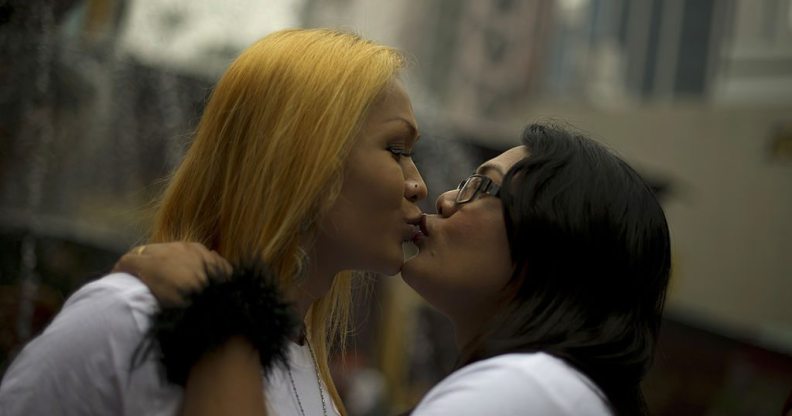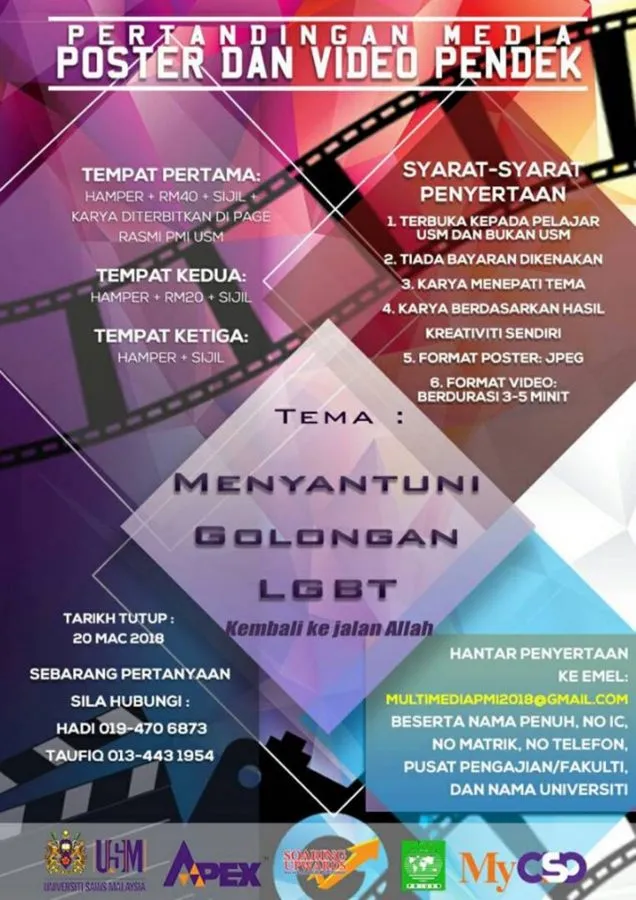Gay conversion contest at Malaysia university sparks outrage

(Getty)
A Malaysian university has been slammed by rights activists after it emerged that it held a contest last month to “convert” gay students.
Amirah Sulaiman, a 22-year-old member of the Muslim Students Association, which organised the contest, told AFP: “We will work hard to convert them,” she said. “LGBT is like smoking – it is bad for health.”
The student group at the publicly owned Universiti Sains Malaysia on the island of Penang called on participants to create posters and videos for its “Back to Nature” campaign.
The association said it wanted to prevent “LGBT culture” from spreading in Malaysia in a post on its Facebook page last month, Reuters reports.
Sulaiman said the programme was a “soft approach” to return members of the lesbian, gay, bisexual and transgender (LGBT) community to the “natural path”.
“We want to be close to LGBT people and influence them via Islam,” she added.
The winning entries were a colourful poster urging gay people to “return to the path of Allah” and a video with drawings of an LGBT person who began to change after meeting a religious friend.

(Facebook/Universiti Sains Malaysia)
The contest appears to be the latest instance of what rights groups have said is rising intolerance towards the LGBT community in Malaysia, amid growing religious fundamentalism in the traditionally moderate Muslim country.
Thilaga Sulathireh, founder of transgender rights group Justice for Sisters, expressed fears the contest would perpetuate prejudice and harm LGBT people.
“The messaging was that LGBT people can be changed and LGBT is a form of sickness. That is harmful,” Sulathireh said.
“It can cause harm, such as anxiety, depression and suicide attempts,” she said.
“There must be more programmes with facts to educate people about (the LGBT community).”
Human Rights Watch found that discrimination against LGBT people is “pervasive” in Malaysia in a 2015 report.
Homosexuality is illegal in the southeast Asian country, which retains a ban on sodomy from its colonial era, with a penalty of up to 20 years in jail, caning, or a fine.
In 2012, authorities held seminars and released guidelines aiming to show parents and teachers how to spot signs of homosexuality in children, with official advice stating that boys who like wearing tight, light-coloured clothes and large handbags may be gay, according to local media reports.

